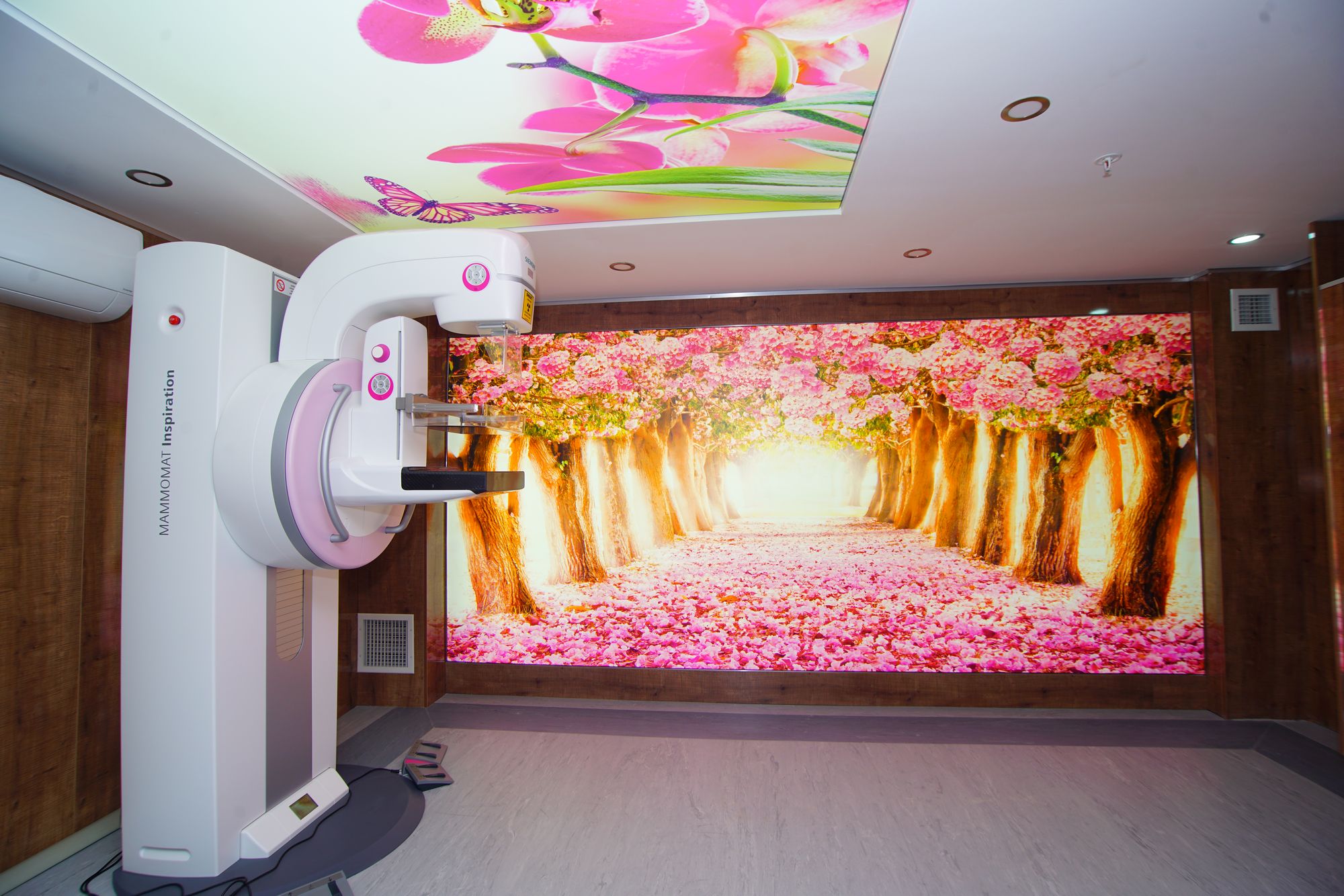Mammography once a year saves lives
Is it possible to be protected from breast cancer?
Your greatest weapon against breast cancer: Mammography
According to statistics, breast cancer is the most common type of cancer encountered in women worldwide and in Turkey. The biggest advantage of breast cancer, which is seen in one out of every 8 women, compared to other cancer types is that approximately 90 percent of the patients can be completely healed if diagnosed at an early stage.
By this aspect, regular screening and control are the most important preventive measures against cancer.
What is the breast cancer and what are its symptoms?
Breast cancer is a disease that occurs as a result of changing and uncontrolled proliferation of cells in breast tissue. According to researches, the risk factor in breast cancer may increase depending on genetic predisposition, hormonal irregularities, lifestyle and environmental factors.
Breast cancer does not show any visible symptoms in the early period. Symptoms only manifest as the disease progresses.
The most common symptoms of breast cancer are listed as follows:
- Presence of a palpable mass that does not cause pain in the breast or armpit,
- Bloody or transparent discharge from the nipple,
- Sores or redness in the nipple,
- Collapse, deformities and various skin problems in the nipple,
- Thickening and / or irritation in the skin of the breast,
- Noticeable growth in the breast,
- Pain in the breast.
Early diagnosis saves lives in breast cancer. Early diagnosis means that breast cancer can be diagnosed before causing the symptoms mentioned above. This can be possible by regular checks.
- It is recommended that all women from the age of 20 undertake regular self-checks by hand and consult a doctor when they feel an abnormal situation.
- From the age of 30, the condition of the breast tissue should be checked regularly with an ultrasound scan once a year.
- All women from the age of 40 must have a mammogram at least once a year.
What is mammography? Why is it important?
Mammography is one of the most effective preventive medical measures today in combating breast cancer. Thanks to the digital mammography technique that takes about 20 minutes, breast cancer can be detected at a very early stage.
Mammography is the process of x-ray of the breast tissue with X-rays. The breast is placed between the two layers of the mammography device and is slightly compressed. Thanks to this process, the images of breast tissue are transferred to the digital environment.
The mammography device can display even the smallest masses and differences in the breast quickly and precisely. The physician determines whether there are any abnormalities in the breast tissue through these images.
Today, in parallel with the developments in technology, mammography devices can perform much faster and effortless processing than before. These devices now deliver a much lower radiation dose to patients. Therefore, mammography does not create any risk factors for patients who have their routine controls.
Methods such as ultrasound and MRI are recommended for patients in the breast cancer risk group, who have had this disease before or who are currently receiving cancer treatment.
When is the best time for mammography?
Women can always have a mammography, which is recommended once a year or every 6 months, except for their menstrual period. The best time for mammography is the first week after the end of menstrual bleeding.
Mammography Statistics in Europe
According to the European Statistics Office (Eurostat) data, in 2018, 75.2 percent of women in the United Kingdom, 74.3 percent in Slovenia, 62 percent of women in Croatia had regular mammographies to prevent breast cancer risk or were able to detect and defeat the disease at an early stage. In Turkey, 34.8 percent of women, therefore only one out of every three women had a mammography.
Experts share the opinion that by increasing awareness and increasing the rate of regular controlling in our country, the number of breast cancer cases will decrease significantly.


